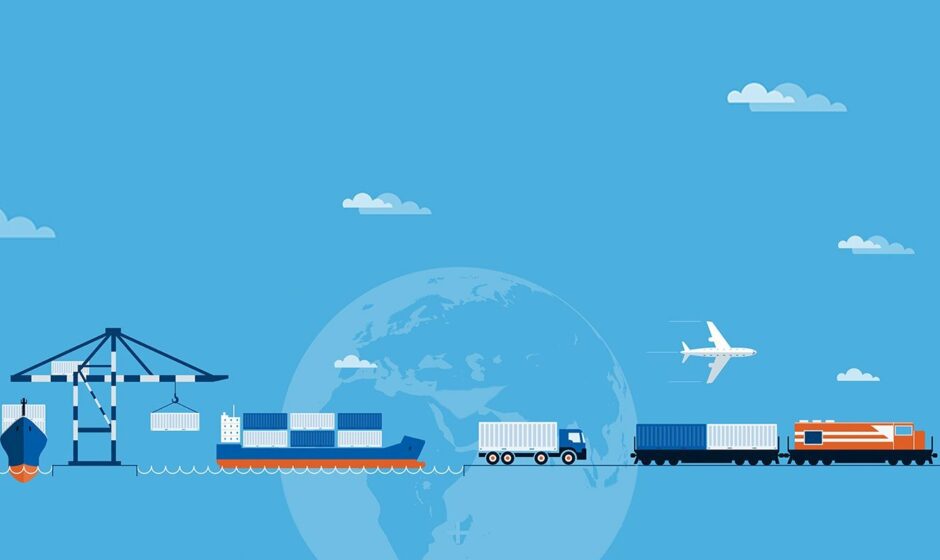Technology has become an important part of everyone’s life. Be it office work, household chores, social media, or business, technology is everywhere. With time technology is getting more and more advanced. AI (Artificial Intelligence) is one of the best examples of recent technological advancements. AI applications are software programs that are designed for specific tasks. It has taken a place everywhere including your home, office, and social media. Recently, this technology has gained popularity because of further advancements and its use in supply chains. COVID-19 has shown us how delicate supply chains can be. So, it is important to have advanced management tools for supply chains to work in such pandemics.
In this article, we will discuss the importance of AI in managing supply chains. You need to understand the benefits and challenges of AI in a supply chain. Moreover, we will discuss the necessary steps to make their supply chains suitable for AI systems.
How Does AI Work in Supply Chains?
A supply chain is a set of activities from creating a product and delivering it to the consumers. It involves many people and companies as supply chain management is quite complex. Supply chains become more complex when the manufacturers fully entirely depend on other people for all the processes. It is very time-consuming and timely delivery of goods or services becomes difficult. Here, comes the use of AI which can efficiently balance the supply chain. It creates a system in which all the processes smoothly from warehouse to freighters to distribution centers.
Modern supply chains need advanced methods and strategies to deal with unfamiliar conditions. AI systems and applications can offer better planning and strategies to meet customers’ demands. From managing inventory to taking care of production and warehouses, AI works effectively. Along with that, AI also provides insights from the data collected from the Internet of Things (IoT) and market trends. It also boots transparency for the manufacturers by providing the real and valuable data. By doing so, AI helps a 3PL logistics company meet ethical and sustainability standards.
Benefits of AI in Supply Chains
AI in supply chains has many benefits and capabilities for making them resilient. It can bring several benefits to the supply chain such as operational efficiency, on-time delivery, risk management, and many more. Here are some of the top benefits that logistics companies can reap from AI:
Low operating costs: AI has automotive powers and it can learn and understand behaviors. As a result, it can efficiently perform repetitive tasks and boost the human workforce. Besides increasing efficiency, it also reduces labor costs. The AI-powered system reduces costs by preventing stockouts and reduces the risks of loss of sales.
On-time delivery: AI can process a large amount of data in real-time. Generative AI can analyze transportation routes and suggest the best routes. This helps businesses deliver goods and services on time. Along with that, it also reduces fuel consumption and transportation costs. It also provides customers with real-time tracking updates on their orders. This builds customers’ trust and confidence in your business.
Advanced planning and real-time decisions: AI uses historical and real-time to plan and make real-time decisions. Because AI analyzes the data carefully, finds the root cause of the problems and suggests solutions according to that. For example, it can find employee errors and product defects and refine the system.
More tailored inventory management: As discussed above, AI helps in forecasting the demand of customers through better inventory management. It helps manufacturers understand customers’ interests in a product and whether the demand is increasing or decreasing. By doing so, it helps manufacturers make decisions according to the demand and improves accuracy.
Challenges of AI in Supply Chains
AI is a great tool to mitigate risks and improve the efficiency of supply chains. It has plenty of benefits and works great for developing resilient supply chains. But implementation of AI in supply chains is quite complicated because of several risks and challenges such as:
Downtime during training: Whenever a new technology comes into business, they need to train the people who will interact with it at any level. This will need time so downtime may likely occur during this time. The professionals should be aware of the downtime and be prepared for it. Moreover, they should be transparent with the business owners about the downtime.
Startup costs: Moreover, there are several cost considerations while implementing a new technology. While implementing AI, companies will need software to run the system and machine learning models. Companies can either buy the software or build it from scratch. They will need to hire professionals to train the people interacting with AI systems.
Complex system: The challenges continue after AI is implemented. For a system to operate globally, it becomes even more challenging to manage. Constant monitoring of AI performance is necessary to accurately forecast customer and business demands. In summary, while AI offers promising advancements in supply chain efficiency, these challenges highlight the complexities, especially for 3PL California companies.
The Future of AI In Supply Chains and Logistics
The supply chain and logistics are critical components of the global economy as they ensure the smooth transportation of goods worldwide. But in today’s interconnected marketplace, they face many challenges. Supply chain and logistics companies keep trying different methods and technologies to navigate those challenges. AI is the most recent technological tool that has emerged as a transformative method in the supply chain. By implementing AI in supply chains, businesses can enhance operational efficiency, customer satisfaction, and profitability.
The future of AI in logistics has great potential to benefit businesses in different ways. AI can automate complex logistics operations and procedures to improve business outcomes. According to studies, AI will transform the whole working pattern of supply chains and logistics by optimizing their processes.




